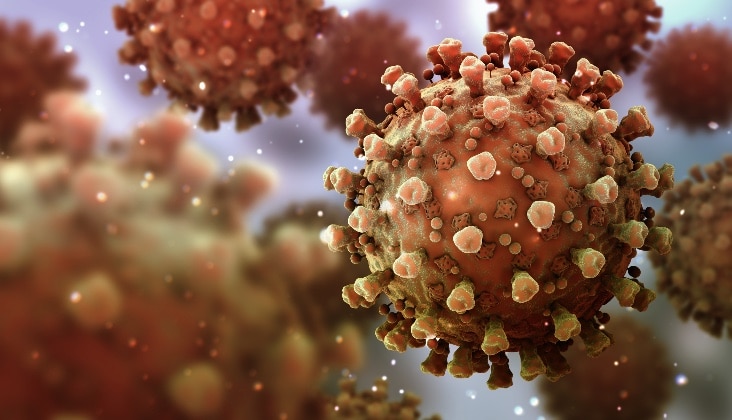
Potential Link Between COVID-19 and Oral Health Uncovered
There is so much we still don’t know about novel coronavirus and COVID-19, the disease it causes. But we’re learning.
Myriad scenarios are being played out in labs, among virologists, and in the press the world over regarding the novel coronavirus’ seemingly endless variations. Yet, to date, we still don’t quite have a handle on how the disease manifests and why some people test positive but never develop symptoms while others die from it.
There is general agreement that underlying risk factors for COVID-19, such as age, diabetes, obesity, hypertension, and cardiovascular disease, can predispose individuals to the most severe ravages of the disease. These are all high-risk comorbidities, which may also cause oral microbiome imbalances. So, it should come as no surprise that oral health—or the lack of it—poses an additional risk.
High Bacterial Loads
A study exploring the possible link between oral hygiene and the severity of COVID-19 infections was recently published in the British Dental Journal.1 In it, the researchers noted that many hospitalized COVID patients being treated for the most severe symptoms, also have high oral bacterial loads.
The researchers investigated whether oral bacteria play a role in bacterial superinfections and related post-viral complications seen in COVID-19 cases. Such complications include blood clots, pneumonia, acute respiratory distress syndrome, septic shock, sepsis, and cytokine storms. The last of these is caused by an overproduction of cytokines, resulting in a severe reaction of the immune system, which can overwhelm and compromise the vascular system and multiple organs.
The Perio Connection
It’s not exactly a news flash that bacteria associated with periodontal disease have been shown to trigger systemic inflammation. But the research findings indicate that such bacteria have been found in severely infected COVID-19 patients, with 50% of deaths exhibiting bacterial superinfections. Enzymes and cytokines associated with periodontal disease have also been implicated in infection promotion in the respiratory system.
In essence, the researchers believe the link between bacterial load stemming from poor oral hygiene and COVID-19 could help explain why 52% of otherwise healthy individuals have succumbed to COVID-19.
The role oral health appears to play in lessening complications is significant, and the takeaway message is that good oral health is paramount. The researchers also conclude that because the types of bacteria present in patients experiencing severe COVID-19 infections are associated with the oral cavity, poor oral hygiene should be considered a post-viral complication risk, especially among patients with underlying risk factors.
It’s easy to see that dental hygienists play a critical role in helping their patients adhere to an effective oral hygiene regimen. To that end, many beneficial agents are available to lay the groundwork for prevention and foster improved oral health. For chairside use, topical fluoride application helps protect enamel from bacterial buildup, while prophy angles and pastes help maintain a polished surface, making pathogenic adherence difficult.
For home use, dentifrice and medicaments are often available from manufacturers as a suite of products designed to complement one another. These range from toothpastes, dental floss, dental picks, and tooth- and interdental brushes to antimicrobial mouthrinses, and dry mouth and pain relief.
It appears that the novel coronavirus pandemic will be with us for a while. But by wearing masks, social distancing, and exercising good hand hygiene … and now oral hygiene, perhaps we can limit its impact.
Reference
- Sampson V, Kamona N, Sampson A. Could there be a link between oral hygiene and the severity of SARS-CoV-2 infections? Br Dent J. 2020;228:971–975.

